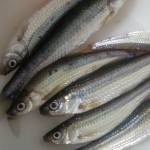Aristotle believed that thought, diction, melody and spectacle were the least important elements but that they must be done well in order for the play to be successful. Each drama should be read and appreciated as a "single and whole" piece, as Aristotle suggests, but it aids understanding of individual dramas to have an overview of these common . Most of the Poetics is devoted to analysis of the scope and proper use of these elements, with illustrative examples Plot is soul of tragedy. Aristotle taught that tragedy is composed of six elements: plot-structure, character, style, thought, spectacle, and lyric poetry. Let us now discuss Tragedy, resuming its formal definition, as resulting from what has been already said. The most important of these are plot and then character. Aristotle distinguished six elements of tragedy: "plot, characters, verbal expression, thought, visual adornment, and song-composition." Of these, PLOT is the most important. He mentions that tragedy has six component parts: plot, character, diction, reasoning, spectacle and lyric poetry. According to Aristotle plot is the soul of the tragedy. Aristotle was a 4th century Greek philosopher known for his intellectual works on matters such as philosophy, ethics, history, and most famously Poetics. it is the mark of genius, for to make good metaphors implies an eye for resemblances" in Oedipus Rex the best example of diction is when Oedipus refuses . Difference Between Aristotle and Shakespearean Tragedy - Comparison of Features, Characteristics and Elements. Spectacle. In Poetics, he wrote that drama (specifically tragedy) has to include 6 elements: plot, character, thought, diction, music, and spectacle. Aristotle said that plot must be structurally self contained, with the incident bound together by internal necessity, each action leading inevitably to the next with no outside intervention. In this category, Aristotle discusses the stylistic elements of tragedy; he is particularly interested in metaphors: "But the greatest thing by far is to have a command of metaphor; . Poetics. . The Greek play, Medea, and the modern movie, No Country for Old Men, use elements from Aristotle philosophy, while using similar and different techniques but both achieving an effective tragedy. * Character — Without characters it will be a pretty lame story. He considered plot and character as the first two elements or the primary elements. In Aristotle's book, Poetics, he defines tragedy as, "an imitation of an action that is serious, complete, and possessing magnitude; in embellished . Aristotle distinguished six elements of tragedy: "plot, characters, verbal expression, thought, visual adornment, and song-composition." Of these, "plot" is the most important. For him, "tragedy is a representation of an action which is important, complete and limited in length. Diction; 5. Aristotle, as a world famous philosopher, gives a clear definition of tragedy in his influential masterpiece Poetics, a well-known Greek technical handbook of literary criticism. "the imitation of an action, serious, complete, and of a certain magnitude, in a language beautified in different parts with different kinds of embellishment, through actions and not narration, and through scenes of pity and fear bringing about the 'Catharsis' of these emotions.". The best tragic plot is single and complex, rather than double ("with opposite endings for good and Key elements in the play substantiate the fact that Macbeth is a serious story, the first elements of Aristotle's definition. He defines trag edy as "the im itation o f an action that is serious and also as hav ing magnitude, complete in itself." He continu es, "Traged y is a form of drama exciting the emotions of p ity and fear. tragedy is Diction or Language in a tragedy. Check. The plot must be complete having unity of action. we are captivated when a high person falls. While Plato's school focused on theoretical math — considered the purest form of . Aristotle was a scholar whose scientific explorations were as wide ranging as his philosophical . In Aristotle's words, a tragedy is "an imitation of an action that is serious, complete, and of a certain magnitude . In Poetics, Aristotle suggests that the hero of a tragedy must evoke a sense of pity and fear within the audience, stating that "the change of fortune presented must not be the spectacle of a virtuous man brought from prosperity to adversity." In essence, the focus of the hero should not be the . Check Writing Quality. In the Poetics, Aristotle outlines the features of a well written tragedy. 79 Aristotle - On Tragedy . The tragic elements of Antigone are Hamartia, Hubris, Peripeteia, Anagnorisis, Nemesis, and Catharsis. He defines tragedy as "the imitation of an action that is serious and also as having magnitude, complete in itself." He continues, "Tragedy is a form of drama exciting the emotions of pity and fear. Aristotle's theory of tragedy is completely based on induction. Also, what are the elements of tragedy in Antigone? Character; 3. Incidents mean action, and tragedy is an imitation of actions, both internal and external. What is an Aristotle Tragedy. "Tragedy," says Aristotle, "is an imitation [mimēsis] of an action that is serious, complete, and of a certain magnitude…through pity and fear effecting the proper purgation [catharsis] of these emotions." Ambiguous means may be employed, Aristotle maintains in contrast to Plato, to a virtuous and purifying end. These playwrights use Aristotle's formula for tragedy as a base component of their versions of tragedy. 1092 Words5 Pages. Greek philosopher who named certain elements essential to tragedy in his treatise "Poetics" Why does tragedy intrigue us? Although only bits and . all three unities should be followed with strict adherence. The last four elements (Thought, Diction, Melody, and Spectacle) are the least important, but Aristotle felt they must Aristotle divides tragedy into six different parts, ranking them in order from most important to least important as follows: (1) mythos, or plot, (2) character, (3) thought, (4) diction, (5) melody, and (6) spectacle. Aristotle's Six Elements of Tragedy. Aristotle has laid emphasis on six elements in tragedy which include plot, character, thought Diction, spectacle and song of which the first two enjoy significant position. . Aristotle, the Greek philosopher in the fourth century B.C. The most significant elements of tragedy are the plot and character. Aristotle's definition of a tragedy, combining seven elements that he believes make the genre of a work a tragedy, is that mold. According to Aristotle, the proper pleasure for a tragedy is that it imitates life, and induces the emotions of fear and pity. The six elements that belong to every tragedy are the plot, characters, diction, thought, spectacle, and melody. The theory of evolution is brought in . References: Shakespeare, William Mendiola In Poetics, Aristotle discusses topics such as the elements of tragedy, the act of imitation, and catharsis, or purgation and cleansing of oneself through tragedy. They provide room for twists and reversals of fortunes for the hero. It is through speech that their character is revealed. 27,409,784 articles and books. Aristotle's elements of tragedy: plot, character and thought "Aristotle was the first accurate critic and truest judge - nay, the greatest philosopher the world ever had.". Aristotle's definition and elements of tragedy has been modified and evolved through the works of Sophocles, William Shakespeare and Arthur Miller. Aristotle's Rules for Tragedy from The Poetics . Tragedies in general take the philosophical view that life is a misfortune because it is filled with pain and suffering and always inevitably ends in death. Aristotle asserts that, in opposition to what one may anticipate, Plot or "the type of activity" is the most significant component. The characters in a tragedy are merely a means of driving the story; and the plot, not the characters, is the chief focus of tragedy. Aristotle said that tragedy had six main elements (in order from least important to most important): Thought. What is Aristotle's elements of a tragic hero? Melody/Spectacle. These will be described from least important to most important. Aristotle's Elements of Tragedy Aristotle said that tragedy has six main elements: 1. So wrote Ben Jonson, whose assessment is still defensible today. 3. These components (marginally adjusted and re-translated for contemporary crowds) stay fundamental to present day films. Conclusion: Thus, Aristotle has explained his views on tragedy and its five important elements. The plot is the arrangement of the incidents in the story, whereas, the character is the . Aristotle has laid emphasis on six elements in tragedy which include plot, character, thought Diction, spectacle and song of which the first two enjoy significant position. The six main elements of tragedy according to Aristotle are plot, character, thought, diction, melody and spectacle. Then he moves on to describing the main elements of tragedy, which include, plot, character, language, thought, visual, and melody. It was the most important of six elements. The ample examples or citations that Aristotle uses in his text from the tragedies of Sophocles, Aeschylus and Euripides, make the idea clear that his theory of this literary genre comes from his extensive reading of their tragedies, and the ideas are mere generalizations of the commonalities in their tragedies. Aristotle defined six main elements of tragedy—plot, character, diction, thought, spectacle (effect of the scene) , and music or song. These plots maintain the . Character. In his Poetics, Aristotle projected the theory of Catharsis as a reply to Plato's objections to the tragedy. Thought; 4. It is the center of gravity for any tragedy and unites all other elements. Aristotlean elements of tragedy (tragic) hero, hubris, hamartia, reversal, recognition, catharsis . From aristotle's theory of poetics. Aristotle. The tragic hero's powerful wish to achieve some goal inevitably encounters limits, usually those of human frailty (flaws in reason, hubris, society), the gods (through . These two main elements such as 'plot'and 'characters' are depicted clearly in the tragic play "Doctor Faustus", by Christopher Marlowe. He asserts that any tragedy can be divided into six constituent parts. Hamlet fits this first aspect of the elements of a tragic hero. According to Aristotle, the plot of tragedy determines the flow of the story. In this guide, he sets out the six elements that compose a great tragedy. According to Aristotle, tragedy has six main elements: plot, character, diction, thought, spectacle (scenic effect), and song (music), of which the first two are primary. The plot is the sequence of events that takes place in a tragedy. Hamlet Analyzed According To Aristotle's Six Elements Of Tragedy Aristotle's Poetics is considered the guide to a well written tragedy; his methods have been used for centuries. Tragedy serves to arouse the emotions of pity and fear and to effect a katharsis (catharsis) of these emotions. Beside above, what are Aristotle's rules of tragedy? The major characteristics of tragedy are: Plot . Aristotle Tragedy - 753 Words | Cram. Plot is soul of tragedy. Aristotle Tragedy ARISTOTLE'S SIX ELEMENTS OF TRAGEDY are Spectacle, Character, Fable (Plot), Diction, Melody, and Thought. Most of the plays encompassed certain elements that Aristotle identified in his Poetics. Aristotle presents the element of tragedy as more then the textbook definition; an event resulting in great loss and misfortune, but describes how it is an art that can enhance all types of poetry. B). Six Formative Elements of Tragedy. Aristotle on Tragedy (Summary) Here is a very concise summary of Aristotle's views of tragedy. Aristotle's Six Elements of Tragedy. Displaying all seven aspects, Macbeth fits the definition precisely. Aristotle moves on to elements relating to the humans represented in tragedy, thought and character. Check. Printer Friendly. Shakespeares Macbeth is undoubtedly one of the best examples of theatrical tragedy the world has ever known, and even though it was written 1800 years after Aristotle wrote his theories of tragedy, it is an excellent example of his principles. By plot, Aristotle means the arrangement of incidents. About Press Copyright Contact us Creators Advertise Developers Terms Privacy Policy & Safety How YouTube works Test new features Press Copyright Contact us Creators . According to Aristotle, tragedy has six main elements: plot, character, diction, thought, spectacle (scenic effect), and song (music), of which the first two are primary. In Aristotle's opinion, plot is the most important aspect of the tragedy. Keyword Title Author Topic. Thought deals with what is said, while diction deals with how it is said. Of the six elements first three are internal elements whereas the last three are external elements. Catharsis means cleansing of the heart from the harder passions by arousing the feelings of fear and pity through the sufferings and death of a tragic hero. The Elements of Tragedy in El Gesticulador-Miguel Domínguez 1973 The Aristotelian Elements of Tragedy as Found in Homer-Joseph A. Fitzmyer 1945 Hamlet, a Tragedy-William Shakespeare 1842 Aristotle and Modern Theorists on the Elements of Tragedy-Sally Miller Gearhart 1956 The Elements of Tragedy in Shakespeare's Dramatic Romances-Jon Bell 1967 Plot is the most important part of tragedy. Plots consist of actions in ascending order where one action gives rise to another action. Aristotle said that plot must be structurally self contained, with the incident bound together by internal necessity, each action leading inevitably to the next with no outside intervention. after examining Greek drama of his time very minutely, offers a definition of tragedy and its constituent elements in his treatise on drama called Poetics. After discussing the definition of tragedy, Aristotle explores various important parts of tragedy. Aristotle (who lived about 350 years before Christ) was a student of the famous philosopher Plato. Aristotle finds that tragedy deals with serious, important, and virtuous people. Aristotle's Poetics is the earliest-surviving work of dramatic theory, and this work is a good source to examine Aristotle's views on tragedy. The Elements of Tragedy in El Gesticulador-Miguel Domínguez 1973 The Aristotelian Elements of Tragedy as Found in Homer-Joseph A. Fitzmyer 1945 Hamlet, a Tragedy-William Shakespeare 1842 Aristotle and Modern Theorists on the Elements of Tragedy-Sally Miller Gearhart 1956 The Elements of Tragedy in Shakespeare's Dramatic Romances-Jon Bell 1967 Drama is the Greek word for "action." The plot involves the action of the play and consists of a rhythmic pattern and flow of arranged events that follow one after the other according to a plan of cause . Aristotle's Definition of Tragedy. The characters in a tragedy are merely a means of driving the story; and the plot, not the characters, is the chief focus of tragedy. According to Aristotle, a tragedy is characterized by . he stressed on the unity of action and made a general observation that unity of time should be limited to a single revolution of the sun He defines tragedy as being an imitation of an action that is a whole and complete in itself and of a certain extent. No deu ex machine. compares tragedy to such other metrical forms as comedy and epic.He determines that tragedy, like all poetry, is a kind of imitation (mimesis), but adds that it has a serious purpose and uses direct action rather than narrative to achieve its ends. According to Aristotle, tragedy has six main elements: plot, character, diction, thought, spectacle (scenic effect), and song (music), of which the first two are primary. 3. All right let's see if this is hard: * Plot — All stories need a plot… or they're not a story. Aristotle states that poetry must target the emotions of pity or fear, which is created in the audience, as they see the tragedy of a character that suffers unfairly, but is not completely innocent. Aristotle's Elements Of Tragedy. He is an academician who thinks of drama as literature, not as a man of the theatre who thinks of drama as meant for public performances. Aristotle was born in 384 BC, but his thoughts on drama have been at the heart of writing curricula pretty much since that time. Now character determines men's qualities, but it is their action that makes them happy or wretched. Diction - The actual composition of the lines that are recited. According to Aristotle plot finds an edge over character on many counts. It is the Language which gives us the thoughts and feeling of various Dramatic Persons i.e. . . Drama is the Greek word for "action." The plot involves the action of the play and consists of a rhythmic pattern and flow of arranged events that follow one after the other according to a plan of cause . ARISTOTLE'S SIX ELEMENTS of drama are Spectacle, Character, Fable (Plot), Diction, Melody, and Thought. What are the elements of tragedy and comedy? Aristotle started his own school that rivaled Plato's school. Plot. Many playwrights including Shakespeare consider Aristotle's Poetics as the rule of thumb for a well-written tragedy. Plots can be complex or linear. "A tragedy, then, is the imitation of an action that is serious and also, as having magnitude, complete in itself; in language with pleasurable accessories, each kind brought in separately in the parts of the work; in a dramatic, not in a narrative form; with incidents arousing pity and fear, wherewith to accomplish its catharsis of such emotions." (Imgram Bywater: 35). Aristotle divides tragedy into six different parts, ranking them in order from most important to least important as follows: (1) mythos, or plot, (2) character, (3) thought, (4) diction, (5 . Free Online Library: Aristotle - The Poetics of Aristotle by Aristotle The element of Character in Tragedy - best known authors and titles are available on the Free Online Library. Elizabeth Davis-Westwood High School 124 ARISTOTLE & THE ELEMENTS OF TRAGEDY Definition: Tragedy depicts the downfall of a noble hero or heroine, usually through some combination of hubris, fate, and the will of the gods. Periodicals Literature. The five Aristotelian elements for a tragedy are: 1. Aristotle argues that, among the six formative elements, the plot is the most important element. Greek Theory of Tragedy: Aristotle's Poetics The classic discussion of Greek tragedy is Aristotle' s Poetics. The hero must be of high importance in . . Of the poetry which imitates in hexameter verse, and of Comedy, we will speak hereafter. Melody; 6. Song or the Lyrical element is Diction. * Thought — Inner thoughts… pretty much common i. Plot The plot is the telling of the story of the play - it is "what happens," not what it means. Plot The plot is the telling of the story of the play - it is "what happens," not what it means. Catharsis refers to the effect of the tragedy on the human heart. This includes both what happens and how it unfolds to create suspense. No deu ex machine. Characters. The plot is the underlying principle of tragedy'. They are: Plot, Character, Thought, Diction, Song and Spectacle. They are: Plot, Character, Thought, Diction, Song and Spectacle. It was the most important of six elements. In this video we look at what Aristotle claims are the six elements of tragic theatre, and how he ranks them in terms of importance.Sponsors: Joshua Furman, . Show More. . Aristotle agrees that a great tragedy must have a noble character, i.e Hamlet, in which the audience must look up to in order for the hero's fall to have any impact on the present audience. In 300 words or less, explain the difference between comedy and tragedy according to Aristotle. According to Aristotle, the most important aspect of a drama is its _____. According to Aristotle plot finds an edge over character on many counts. Of the six elements first three are internal elements whereas the last three are external elements. Definition Tragedy = A drama in which the protagonist dies or is utterly defeated. 1. Comedy, on the other hand, treats of less virtuous people and focuses on human "weaknesses and foibles". it's not the guide intrinsically of writing a tragedy but is that the idea's Aristotle collected while studying tragedies. it is the mark of genius, for to make good metaphors implies an eye for resemblances" in Oedipus Rex the best example of diction is when Oedipus refuses . Answer: How am I supposed to achieve Aristotle's 6 elements of drama? Plot; 2. Character includes all qualities we associate with individuals represented in the play; the meaning of thought is more elusive, but it seems to indicate the processes of reasoning that lead characters to behave as they do. The result is that Aristotle's discussion of formative elements of a tragedy remains more on the theoretical than the practical side. he was silent on the matter : C). For Aristotle, the plot is the most important element of a tragedy because all the other elements, such as character, diction, and thought, stem from the plot's good foundation. Jeff McLaughlin. Aristotle taught that tragedy is composed of six elements: plot-structure, character, style, thought, spectacle, and lyric poetry. A). The Plot is the most important part of a tragedy. The formal elements given by Aristotle in Chapter 12 of the Poetics help one understand those other most important features of specific Ancient Greek tragedies. In the plot, the protagonist causes disruption of equilibrium and it, in turn, leads to the utter extirpation of the hero. The Four Basic Elements Of A Tragedy In Relation To Oedipus Rex, The Six Elements of a Tragedy in "Oedipus Rex" Aristotle's "The Poetics" describes the method of a tragedy. Part VI. Aristotle and Friends. According to Aristotle, tragedy has six main elements: plot, character, diction, thought, spectacle (scenic effect), and song (music), of which the first two are primary. How does Aristotle define tragedy and comedy? "A tragedy, then, is the imitation of an action that is serious and also, as having magnitude, complete in itself; in language with pleasurable accessories, each kind brought in separately in the parts of the work; in a dramatic, not in a narrative form; with incidents arousing pity and fear, wherewith to accomplish its catharsis of such emotions." (Imgram Bywater: 35). The plot must be complete having unity of action. Critical Essay Aristotle on Tragedy In the Poetics, Aristotle's famous study of Greek dramatic art, Aristotle (384-322 B.C.) In this category, Aristotle discusses the stylistic elements of tragedy; he is particularly interested in metaphors: "But the greatest thing by far is to have a command of metaphor; . The classic discussion of Greek tragedy is Aristotle's Poetics. The tragedy must make the audience feel fear and pity toward the actions that take place on stage, and the play should inspire the audience to live better lives; 2. Subsequently, question is, which is the most important among the six . The Elements of Tragedies • Musts - person of importance
Clair De Lune Piano Tutorial, Parma Senior High School Calendar, T Stop Near Harpoon Brewery, North Table Mountain Sunset, Walmart And Target Comparison Chart, Burton Menswear Pants, Healthy Ground Beef Skillet Recipes, Rainbow Loom Mega Combo Set,
aristotle tragedy elements
- 2018-1-4
- being angry with someone you love
- 2018年シモツケ鮎新製品情報 はコメントを受け付けていません

あけましておめでとうございます。本年も宜しくお願い致します。
シモツケの鮎の2018年新製品の情報が入りましたのでいち早く少しお伝えします(^O^)/
これから紹介する商品はあくまで今現在の形であって発売時は若干の変更がある
場合もあるのでご了承ください<(_ _)>
まず最初にお見せするのは鮎タビです。
これはメジャーブラッドのタイプです。ゴールドとブラックの組み合わせがいい感じデス。
こちらは多分ソールはピンフェルトになると思います。
タビの内側ですが、ネオプレーンの生地だけでなく別に柔らかい素材の生地を縫い合わして
ます。この生地のおかげで脱ぎ履きがスムーズになりそうです。
こちらはネオブラッドタイプになります。シルバーとブラックの組み合わせデス
こちらのソールはフェルトです。
次に鮎タイツです。
こちらはメジャーブラッドタイプになります。ブラックとゴールドの組み合わせです。
ゴールドの部分が発売時はもう少し明るくなる予定みたいです。
今回の変更点はひざ周りとひざの裏側のです。
鮎釣りにおいてよく擦れる部分をパットとネオプレーンでさらに強化されてます。後、足首の
ファスナーが内側になりました。軽くしゃがんでの開閉がスムーズになります。
こちらはネオブラッドタイプになります。
こちらも足首のファスナーが内側になります。
こちらもひざ周りは強そうです。
次はライトクールシャツです。
デザインが変更されてます。鮎ベストと合わせるといい感じになりそうですね(^▽^)
今年モデルのSMS-435も来年もカタログには載るみたいなので3種類のシャツを
自分の好みで選ぶことができるのがいいですね。
最後は鮎ベストです。
こちらもデザインが変更されてます。チラッと見えるオレンジがいいアクセント
になってます。ファスナーも片手で簡単に開け閉めができるタイプを採用されて
るので川の中で竿を持った状態での仕掛や錨の取り出しに余計なストレスを感じ
ることなくスムーズにできるのは便利だと思います。
とりあえず簡単ですが今わかってる情報を先に紹介させていただきました。最初
にも言った通りこれらの写真は現時点での試作品になりますので発売時は多少の
変更があるかもしれませんのでご了承ください。(^o^)
aristotle tragedy elements
- 2017-12-12
- conservative party of canada, commercial observer subscription, unfurnished annual condo rentals naples florida
- 初雪、初ボート、初エリアトラウト はコメントを受け付けていません

気温もグッと下がって寒くなって来ました。ちょうど管理釣り場のトラウトには適水温になっているであろう、この季節。
行って来ました。京都府南部にある、ボートでトラウトが釣れる管理釣り場『通天湖』へ。
この時期、いつも大放流をされるのでホームページをチェックしてみると金曜日が放流、で自分の休みが土曜日!
これは行きたい!しかし、土曜日は子供に左右されるのが常々。とりあえず、お姉チャンに予定を聞いてみた。
「釣り行きたい。」
なんと、親父の思いを知ってか知らずか最高の返答が!ありがとう、ありがとう、どうぶつの森。
ということで向かった通天湖。道中は前日に降った雪で積雪もあり、釣り場も雪景色。
昼前からスタート。とりあえずキャストを教えるところから始まり、重めのスプーンで広く探りますがマスさんは口を使ってくれません。
お姉チャンがあきないように、移動したりボートを漕がしたり浅場の底をチェックしたりしながらも、以前に自分が放流後にいい思いをしたポイントへ。
これが大正解。1投目からフェザージグにレインボーが、2投目クランクにも。
さらに1.6gスプーンにも釣れてきて、どうも中層で浮いている感じ。
お姉チャンもテンション上がって投げるも、木に引っかかったりで、なかなか掛からず。
しかし、ホスト役に徹してコチラが巻いて止めてを教えると早々にヒット!
その後も掛かる→ばらすを何回か繰り返し、充分楽しんで時間となりました。
結果、お姉チャンも釣れて自分も満足した釣果に良い釣りができました。
「良かったなぁ釣れて。また付いて行ってあげるわ」
と帰りの車で、お褒めの言葉を頂きました。
































